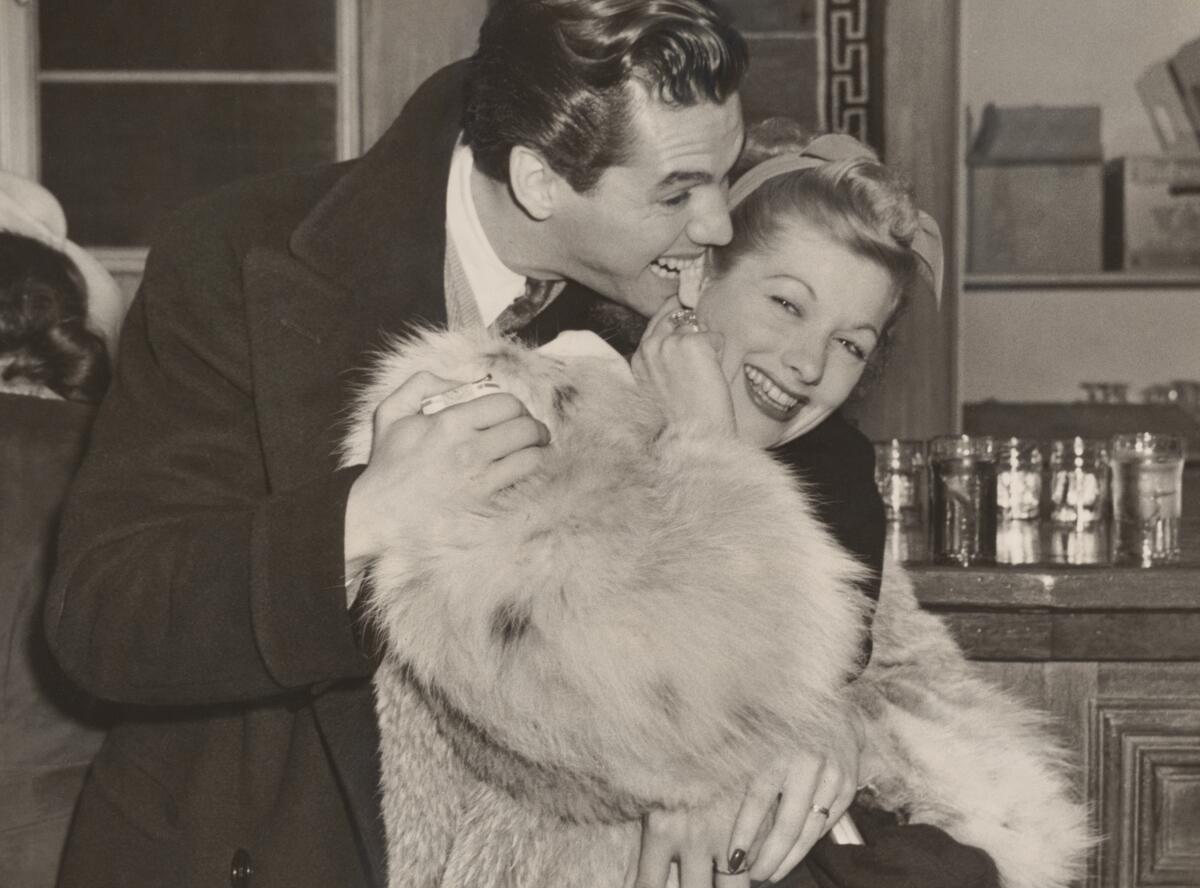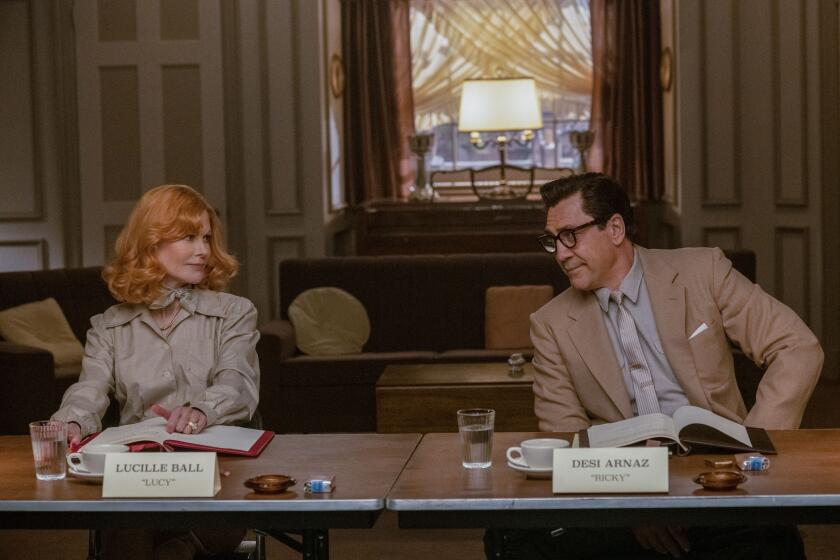Review: Amy Poehler’s ‘Lucy and Desi’ is an absorbing look at their complex lives

- Share via
Is there anything that devotees of Lucille Ball and Desi Arnaz don’t know at this point about the groundbreaking power couple or their beloved 1950s TV show, “I Love Lucy”? And wasn’t so much of that territory covered recently in Aaron Sorkin’s deep-dive, behind-the-scenes biopic “Being the Ricardos,” not to mention in countless other film and TV portraits over the years?
Although the answers to those questions are, respectively, “probably not” and “yes,” it doesn’t take away from the many strengths of the absorbing, entertaining and lovingly crafted documentary “Lucy and Desi,” directed by comedian and filmmaker Amy Poehler and written by Mark Monroe.
For your safety
The Times is committed to reviewing theatrical film releases during the COVID-19 pandemic. Because moviegoing carries risks during this time, we remind readers to follow health and safety guidelines as outlined by the CDC and local health officials.
This fast-paced, cradle-to-grave recounting of Ball and Arnaz and their famed collaborations — creative, romantic and familial — is chock-full of irresistible archival footage and photos; captivating film and TV clips; and stirring, previously unheard audio of Lucy and Desi unearthed from daughter Lucie Arnaz’s treasure trove of family memorabilia. (She used some of the home movie bits seen here in her 1993 documentary, “Lucy and Desi: A Home Movie.”)
The rare audio material mainly features excerpts of an interview with Ball conducted circa 1965 for Ladies Home Journal (eventually used instead as the basis for the autobiography “Love, Lucy”). It offers an intimate emotional window into the legendary actress-comedian and her unique place within both showbiz and her often fraught marriage to co-star and business partner Arnaz. The Cuban-born bandleader, actor and producer is heard here in revealing recordings made late in his life for a never-published second memoir. (His first, “A Book,” came out in 1976.)
Several things, though hardly news, jump out in this rich revisit. These include the extent of Arnaz’s creative contributions to the art of television; the eventual size and scope of Ball and Arnaz’s Desilu Productions (and Ball’s groundbreaking, solo takeover of the studio in 1962); and that “I Love Lucy,” seen in a wide array of classic clips from the sitcom, remains as laugh-out-loud funny as ever.
Aaron Sorkin’s biopic of Lucille Ball and Desi Arnaz takes some liberties with the truth. We examine the film’s treatment of three real-life events.
Poehler weaves in warm interviews with such Lucy enthusiasts as Carol Burnett and Bette Midler (both taken under Ball’s wing early in their careers) and Norman Lear; Gregg Oppenheimer (son of “I Love Lucy” writer-producer Jess Oppenheimer) and David Daniels (whose father, Marc, directed the show’s first 38 episodes); and Journey Gunderson and Laura LaPlaca, executives — and Lucy-Desi experts — at museums in Ball’s hometown of Jamestown, N.Y. Singer-guitarist Charo and Cuban-American playwright Eduardo Machado also weigh in on Desi’s behalf.
Perhaps most pivotal is the candid, often moving input by Lucie Arnaz about her parents’ starry, complicated lives, as told from a decidedly front-row seat. Her brother, Desi Jr., contributes a smattering of audio-only observations.
'Lucy and Desi'
Rated: PG, for thematic elements, smoking and language
Running time: 1 hour, 42 minutes
Playing: Available March 4 on Amazon Prime
More to Read
Only good movies
Get the Indie Focus newsletter, Mark Olsen's weekly guide to the world of cinema.
You may occasionally receive promotional content from the Los Angeles Times.











